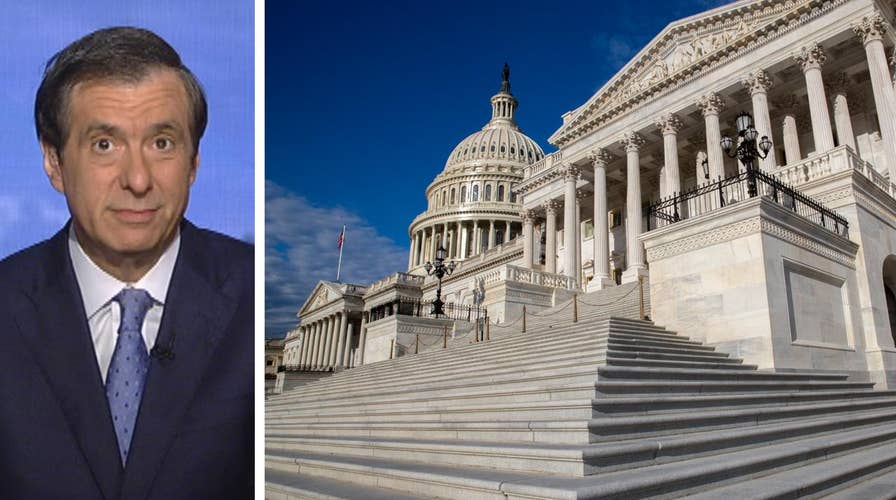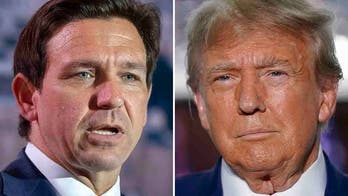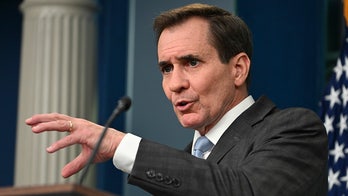Kurtz: Capitol still paralyzed over health care
'MediaBuzz' host Howard Kurtz weighs in on the reasoning behind Senate republicans pulling their healthcare bill
Let’s face it: Nobody likes this health care bill.
Not the Republicans, certainly not the Democrats, and according to polls, not much of the public.
And that’s why the Senate GOP had to yank the bill yesterday. Mitch McConnell doesn’t have the votes. And given a choice between a delay and an outright defeat for President Trump, he kicked the can down the road.
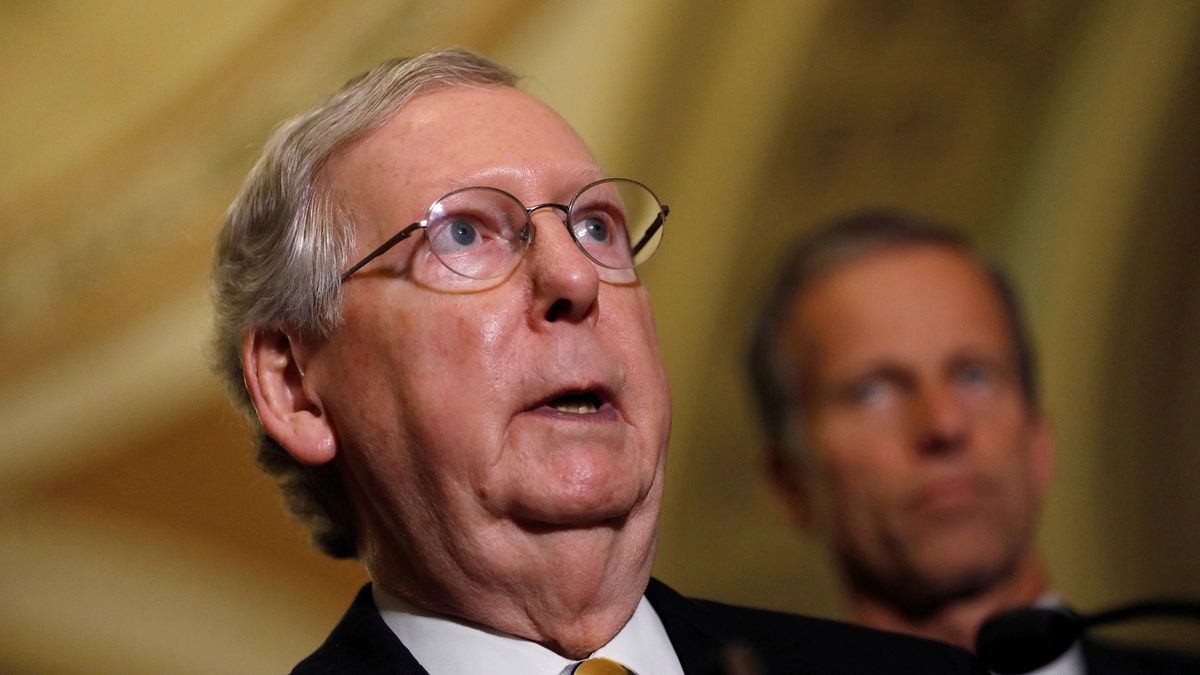
Senate Majority Leader Mitch McConnell speaks to the media about plans to repeal and replace Obamacare on Capitol Hill in Washington, U.S., June 27, 2017. REUTERS/Aaron P. Bernstein - RTS18VLA (REUTERS)
When the Senate majority leader set a July 4 deadline for the vote, I saw two possibilities.
One was that forcing a vote gave him the best chance to solidify his support quickly, before the opposition could build and before lawmakers went home for the recess.
The other was that McConnell was willing to let the bill go down if he couldn’t salvage it and move on to tax cuts and infrastructure, rather than allowing the health debate to consume the rest of the year.
McConnell brushed off the setback, saying “it’s a big, complicated subject,” and saying he was confident they would achieve “a result that’s better than the status quo.”
Not exactly a great bumper-sticker slogan.
Chuck Schumer, for his part, called the measure “rotten at the core.”
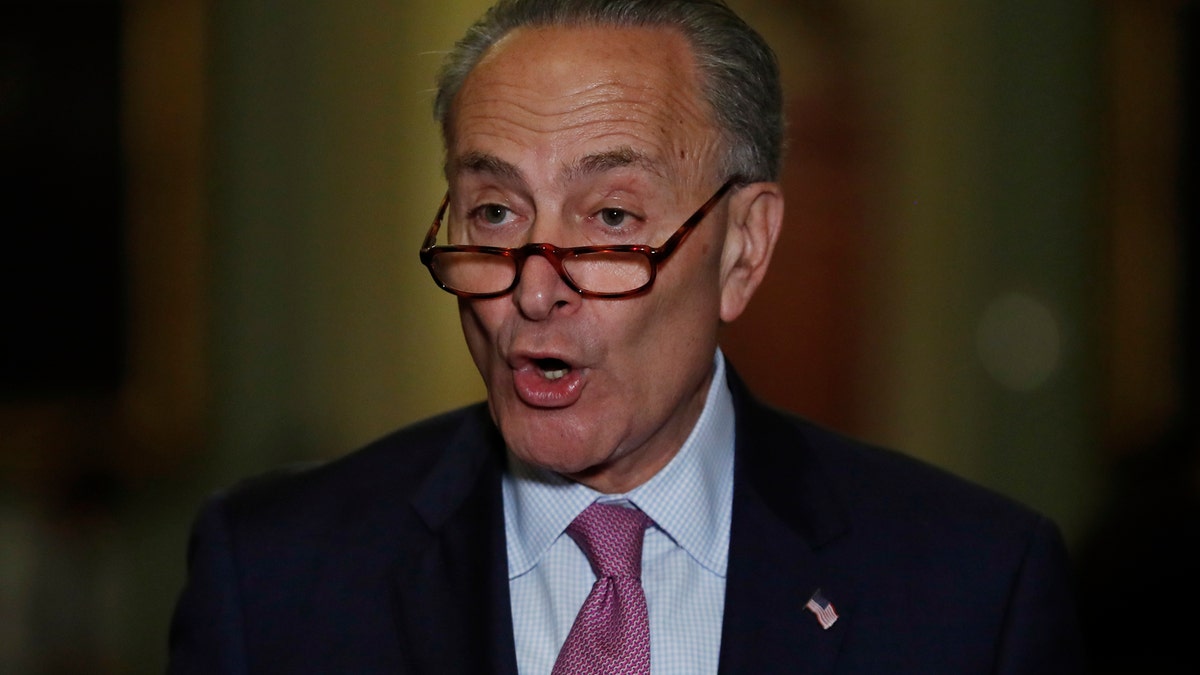
Senate Minority Leader Chuck Schumer, D-N.Y., speaks during a news conference on Capitol Hill in Washington, Tuesday, June 27, 2017. In a bruising setback, Senate Republican leaders shelved a vote on their prized health care bill Tuesday until at least next month, forced to retreat by a GOP rebellion that left them lacking enough votes to even begin debate. (AP Photo/Carolyn Kaster) (AP)
After seven years of promises, it is proving increasingly difficult to revamp ObamaCare, since the bill in play does not repeal or replace it. Fashioning a compromise that satisfies both the party’s conservatives and moderates is just extremely difficult.
This is the dilemma that initially sunk the effort in the House, and the Senate is a tougher challenge because moderates have a stronger voice and McConnell can lose only two Republicans—and at least three have said they’ll oppose bringing the measure to a vote.
The lousy CBO scoring didn’t help. And even if you buy the administration’s argument that the Congressional Budget Office has a lousy track record, its report certainly made the Senate bill a tougher political sell.
An estimate that 22 million people would lose coverage—even if many are opting out with the elimination of the mandate—puts the Republicans on the defensive, along with estimates of premiums tripling for some older folks. And Democrats charge that this helps pay for a tax cut for the affluent.
It’s hard to square the circle. If you make the bill more generous, it costs more, creates more government intrusion and you lose the conservatives. If you pare back the tax credits, benefits and Medicaid expansion, you lose the moderates.
In a Wall Street Journal/NBC poll, 16 percent said the House health bill was a good idea, and 48 percent called it a bad deal.
At the same time, the media are barely focusing on the existing problems with ObamaCare, which Republicans haven’t tired of pointing out.
Trump’s decision to meet with all Republican senators after the bill was pulled underscores his determination to get something done. And I never underestimate the ability of Congress to paper over problems with vague promises of future reforms and study commissions.
Whether a health bill ultimately passes or not, lots of people are going to be unhappy with the final prescription.
